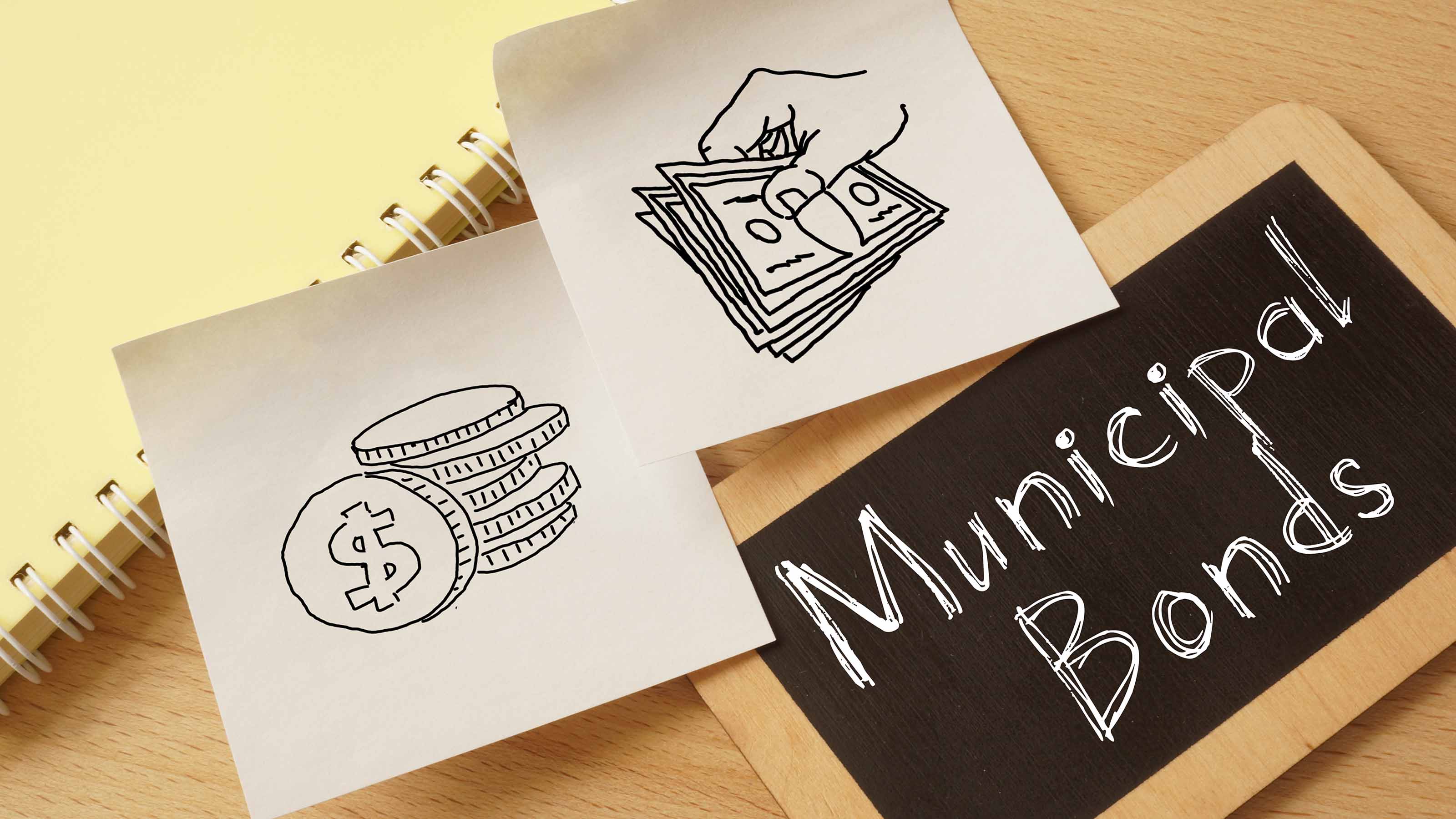6 High-Yielding Stocks for Dividend Investors
These picks should deliver yields of about 4% without any exposure to oil's volatility.

Profit and prosper with the best of Kiplinger's advice on investing, taxes, retirement, personal finance and much more. Delivered daily. Enter your email in the box and click Sign Me Up.
You are now subscribed
Your newsletter sign-up was successful
Want to add more newsletters?

Delivered daily
Kiplinger Today
Profit and prosper with the best of Kiplinger's advice on investing, taxes, retirement, personal finance and much more delivered daily. Smart money moves start here.

Sent five days a week
Kiplinger A Step Ahead
Get practical help to make better financial decisions in your everyday life, from spending to savings on top deals.

Delivered daily
Kiplinger Closing Bell
Get today's biggest financial and investing headlines delivered to your inbox every day the U.S. stock market is open.

Sent twice a week
Kiplinger Adviser Intel
Financial pros across the country share best practices and fresh tactics to preserve and grow your wealth.

Delivered weekly
Kiplinger Tax Tips
Trim your federal and state tax bills with practical tax-planning and tax-cutting strategies.

Sent twice a week
Kiplinger Retirement Tips
Your twice-a-week guide to planning and enjoying a financially secure and richly rewarding retirement

Sent bimonthly.
Kiplinger Adviser Angle
Insights for advisers, wealth managers and other financial professionals.

Sent twice a week
Kiplinger Investing Weekly
Your twice-a-week roundup of promising stocks, funds, companies and industries you should consider, ones you should avoid, and why.

Sent weekly for six weeks
Kiplinger Invest for Retirement
Your step-by-step six-part series on how to invest for retirement, from devising a successful strategy to exactly which investments to choose.
Energy-stock dividends are understandably depressed and we’ve now started to see some severe dividend cuts. Even before crude oil prices collapsed, many investors had begun to investigate other sources of cash from the equity side of their portfolios. If you’re ready for the hunt, join us on a systematic search for high-paying income-and-growth stocks that might even benefit from the oil bust.
One excellent place to start is Meritage Portfolio Management, in the Kansas City suburb of Overland Park, Kan. Meritage manages dividend-oriented stock accounts and, at the start of 2014, launched three no-load mutual funds. The most interesting is Meritage Yield-Focus Stock Fund (symbol MPYEX, $10.62, yield 2.5%, one-year total return to April 7, 4.4%). We need at least six more months before we’d be comfortable putting it in anyone’s list of must-have funds.
But the people at Meritage have a well-reasoned approach to filtering dividend stocks. If you’re looking for individual shares that pay 4% (or slightly more or less, depending on market swings), their list is rich with suggestions. Unlike other dividend-fund managers who emphasize long-term dividend growth, Meritage’s team goes for cash on the barrelhead.
From just $107.88 $24.99 for Kiplinger Personal Finance
Become a smarter, better informed investor. Subscribe from just $107.88 $24.99, plus get up to 4 Special Issues

Sign up for Kiplinger’s Free Newsletters
Profit and prosper with the best of expert advice on investing, taxes, retirement, personal finance and more - straight to your e-mail.
Profit and prosper with the best of expert advice - straight to your e-mail.
Mark Eveans, Meritage’s president and chief investment officer, says he’s rarely comfortable investing in oil producers (though he moved from Illinois to the oil state of Kansas). He shies away because he thinks oil and gas prices are buffeted by political and financial manipulations he can neither understand nor predict.
Eveans likes to invest in master limited partnerships and corporations that pass through cash from storing and handling oil and gas, but he gradually pared those from Meritage’s funds and accounts throughout 2014 while adding more real estate investment trusts, which he judged to be relatively inexpensive. In the main, these were good calls.
However, Yield-Focus Stock’s full-year 2014 return of 6.5% was mediocre, hurt by the performance of business development companies and foreign stocks. Then again, Franklin Rising Dividend (FRDPX), the class of the dividend-stock-fund category, also struggled in 2014, returning 9.7%. And it imposes a maximum 5.75% sales charge.
Meritage’s research is designed to flag companies whose shares are much less volatile than Standard & Poor’s 500-stock index and for which dividends make up 50% to 75% of their long-term returns. Many are no surprises: AT&T (T, $32.69, 5.8%), Verizon (VZ, $48.72, 4.5%) and CenturyLink (CTL, $35.41, 6.1%) make everyone’s high-dividend list. So do electric utilities. The fund presently holds Entergy (ETR, $78.11, 4.3%), Public Service Enterprise Group (PEG, $41.84, 3.7%) and PPL (PPL, $33.94, 4.4%). We expect the entire regulated electric utility sector to extend its run of good returns and consistent dividend growth. And even as the solar revolution slowly spreads, the established utilities will remain an integral part of the power-distribution system.
The rest of Meritage’s portfolio may stoke your curiosity. It certainly gave us some ideas. Despite years of growing stock prices, there’s still a decent selection of industrial, service and technology companies whose shares yield 4% or thereabouts, and not because the stock price collapsed.
Tobacco companies are known for high dividend yields because, frankly, they have to spend so little on product development or marketing. Software companies can also pay richly because they need to spend so little on raw materials and transportation. Each of the following covers its dividends from current cash flow with no sweat and is removed from the travails of fracking and drilling.
Altria (MO, $51.70, 4.0%). The tobacco giant once called Philip Morris still has minor interests in beer and wine, but mostly it converts the immense profits from Marlboros into dividends.
GlaxoSmithKline (GSK, $47.26, 5.9%). The maker of everything from Tums to Ebola vaccines has lagged some fellow big pharmas in shareholder returns for the past few years. But the dividends are tremendous.
Lockheed Martin (LMT, $200.15, 3.0%). Defense contractors are secure sources of earnings and dividends, and Lockheed posted a 12.7% dividend hike this past September. So the yield will rise.
Quality Systems (QSII, $15.76, 4.4%). The company, a supplier of medical, hospital and dental office software, operates in a crowded field, but it’s growing and Quality pays the highest dividends in the industry.
Superior Industries International (SUP, $19.46, 3.7%). It's a maker of aluminum wheels for Ford, GM, Chrysler, Toyota and a few others. To its credit, although the car and truck business is strong, Superior just sold its two company airplanes. It can surely afford to keep up the dividends.
Zurich Insurance Group (ZURVY, $32.35, 6.0%). It's a worldwide insurance empire that often declares big special dividends on top of its high regular payments. Zurich always has gobs of money to pass around. If you’re unfamiliar with the name, in the U.S., well, they are Farmers. Bum, ba-dum, ba bum-bum-bum.
Jeff Kosnett is the editor of Kiplinger’s Investing for Income, a monthly newsletter devoted to uncovering strategies to boost the cash yield on your investments.
Profit and prosper with the best of Kiplinger's advice on investing, taxes, retirement, personal finance and much more. Delivered daily. Enter your email in the box and click Sign Me Up.

Kosnett is the editor of Kiplinger Investing for Income and writes the "Cash in Hand" column for Kiplinger Personal Finance. He is an income-investing expert who covers bonds, real estate investment trusts, oil and gas income deals, dividend stocks and anything else that pays interest and dividends. He joined Kiplinger in 1981 after six years in newspapers, including the Baltimore Sun. He is a 1976 journalism graduate from the Medill School at Northwestern University and completed an executive program at the Carnegie-Mellon University business school in 1978.
-
 Here’s How to Stream the Super Bowl for Less
Here’s How to Stream the Super Bowl for LessWe'll show you the least expensive ways to stream football's biggest event.
-
 The Cost of Leaving Your Money in a Low-Rate Account
The Cost of Leaving Your Money in a Low-Rate AccountWhy parking your cash in low-yield accounts could be costing you, and smarter alternatives that preserve liquidity while boosting returns.
-
 I want to sell our beach house to retire now, but my wife wants to keep it.
I want to sell our beach house to retire now, but my wife wants to keep it.I want to sell the $610K vacation home and retire now, but my wife envisions a beach retirement in 8 years. We asked financial advisers to weigh in.
-
 What Fed Rate Cuts Mean For Fixed-Income Investors
What Fed Rate Cuts Mean For Fixed-Income InvestorsThe Fed's rate-cutting campaign has the fixed-income market set for an encore of Q4 2024.
-
 The Most Tax-Friendly States for Investing in 2025 (Hint: There Are Two)
The Most Tax-Friendly States for Investing in 2025 (Hint: There Are Two)State Taxes Living in one of these places could lower your 2025 investment taxes — especially if you invest in real estate.
-
 The Final Countdown for Retirees with Investment Income
The Final Countdown for Retirees with Investment IncomeRetirement Tax Don’t assume Social Security withholding is enough. Some retirement income may require a quarterly estimated tax payment by the September 15 deadline.
-
 Dividends Are in a Rut
Dividends Are in a RutDividends may be going through a rough patch, but income investors should exercise patience.
-
 Why Investors Needn't Worry About U.S. Credit Downgrade
Why Investors Needn't Worry About U.S. Credit DowngradeFitch Ratings The United States saw its credit rating downgraded for just the second time in history, but experts aren't worried about the long-term damage to stocks.
-
 Municipal Bonds Stand Firm
Municipal Bonds Stand FirmIf you have the cash to invest, municipal bonds are a worthy alternative to CDs or Treasuries – even as they stare down credit-market Armageddon.
-
 High Yields From High-Rate Lenders
High Yields From High-Rate LendersInvestors seeking out high yields can find them in high-rate lenders, non-bank lenders and a few financial REITs.
-
 Time to Consider Foreign Bonds
Time to Consider Foreign BondsIn 2023, foreign bonds deserve a place on the fringes of a total-return-oriented fixed-income portfolio.